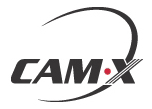As management and HR consultants, and experienced recruiters we are often called in after a company conducted recruitment exercise did not work out. The hiring mistakes generally fall within these 5 categories.
1.Too narrow scope in sourcing the market – As an example we have heard where an expensive ad was placed in an industry magazine with just 3-5 responses. Often because of time restraints and perhaps an open vacancy, companies end up choosing from a far too small candidate source, or the process gets dragged out unnecessarily because of lack of qualified candidates found.
An effective recruitment campaign would include candidates from employee referrals, job board advertising candidates, industry networking candidates, trade association advertising candidates and local advertising candidates. Professional recruitment firms always have their own database of prequalified candidates. Additionally, if you know of a good person in the industry, direct contact or sourcing “passive” candidates is valuable. (this is often easier for a 3rd party to do) Even if you are doing everything else right, selecting from too small a candidate pool is very risky indeed from a candidate quality or a hiring timeliness perspective.
2. Skill Set of the Hiring Manager – More often than not, a hiring manager will focus too heavily on only relevant experience and job knowledge vs. the behaviors understanding which will go a long way in determining best fit. In our experience we see “poor fit” as the reason in about 90% of employment terminations, even when the person is actually competent to do the job! Being skilled in behavioral interviewing is critically important. Learning to do this is all explained in the recruitment module on our website.
3. Poor or no reference checking – We have heard all the reasons why people do not check references, frankly, none of which are really valid, if you know how to properly do a detailed reference check. A proper reference check will verify job skills and more importantly, the fit, or behaviors which the person operates within. There are several detailed reference checking forms in the recruitment module in the HR Power Centre.
4. Lack of orientation or on boarding program – Too often we see new hires that are not properly oriented/introduced or explained what is going on in the job or the Company….and they leave usually within 3-6 months. Hiring managers are often so relieved a new person is onboard, that they unconsciously let them find their own way, which is sending a poor signal to the new hire. A planned first 3-4 weeks is required, with regular scheduled check- ins with the boss. There is simply put – no substitute for this.
5. Not understanding the cost/benefit of spending money in the recruitment process – Frankly, sourcing candidates can be very time consuming and also expensive. Trying to go cheap here will unquestionably affect your quality of hire. Additionally, getting locked in on a certain compensation or salary number is also placing you at a great disadvantage. Sometimes, by paying even a few dollars more, you open up a vastly different candidate pool. The market will tell you what to pay in most cases.
Also, compensation now is often not the most important thing to job candidates. Other factors such as benefits, hours of work, telecommuting, work from home, daycare availability, public transit availability, career progression, vacation, etc. are all important. If your benefits plan is outdated, it will affect your ability to hire qualified candidates in the marketplace. The decision to save a few thousand dollars in the recruitment process, can have very long lasting negative consequences, with less than average performers working in a business long term. The payback for hiring a high performing individual far outweighs any ‘savings’ realized in a recruitment campaign.


Leave a Reply
Your email is safe with us.